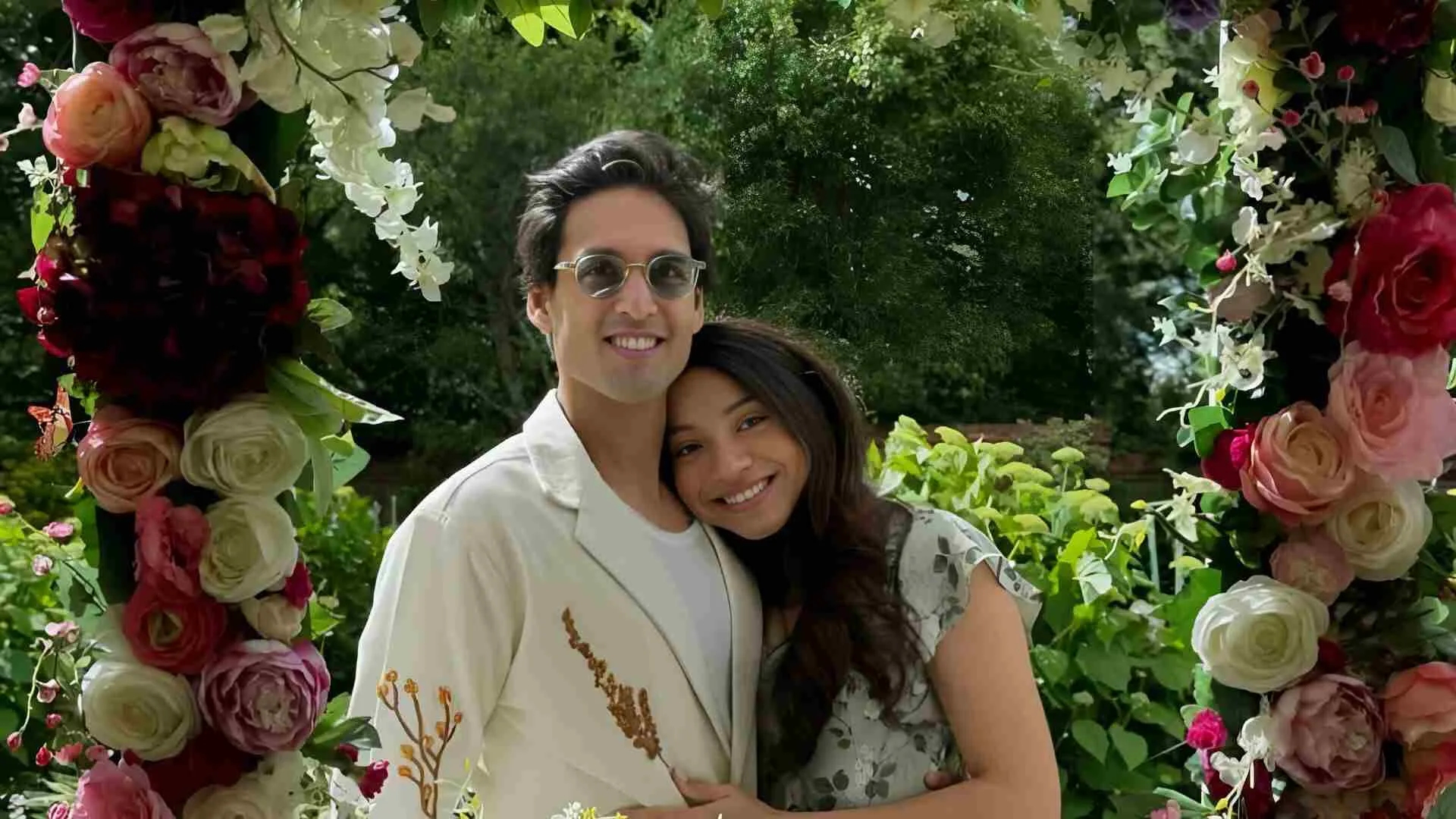It was at the historic battle of Khanau in AD 1527 that the Rathores, the legendary warriors of Jodhpur, first came face to face with firearms. As H.H. Maharaja Gaj Singhji recalls in his foreword for the commemorative book, The Maharaja of Jodhpur’s Guns, by historian and author Robert Elgood: “Unfortunately, we were only on the receiving end. Babur the Mughal, soon to be the first Emperor, took my most esteemed ancestor Rao Maldev—then the heir apparent—and his legendary cavalry by surprise. They were mowed down by a row of guns, matchlock and mortars, tethered together by chain.”
This war, as Bapji Maharaja puts it, was the Rajput confederacy’s swan song, bringing to an end the heady, reckless charge on horse with sword and lance. It also flagged off the very illustrious journey of the Maharajas of Jodhpur with guns, arms and armaments, especially during the reign of Maharaja Ajit Singh (1678-1724), who purchased a large number of guns when his daughter married the Mughal emperor.
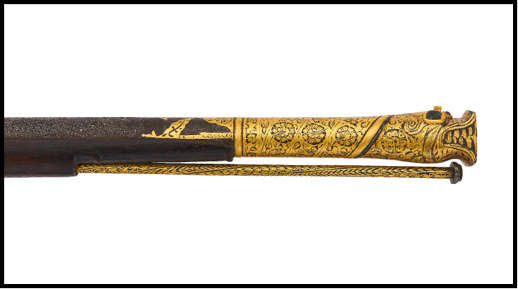
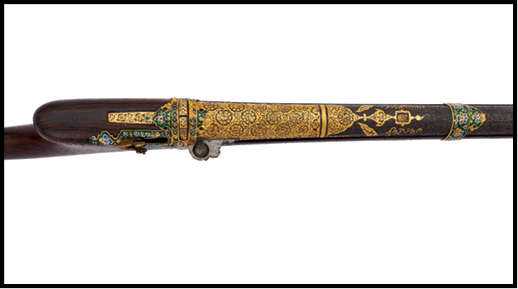
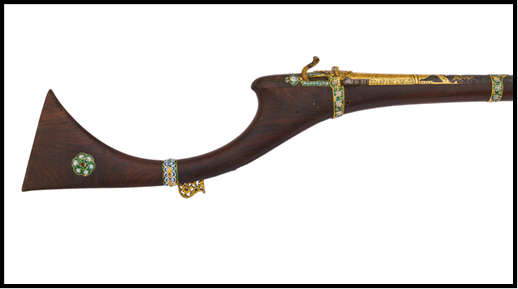
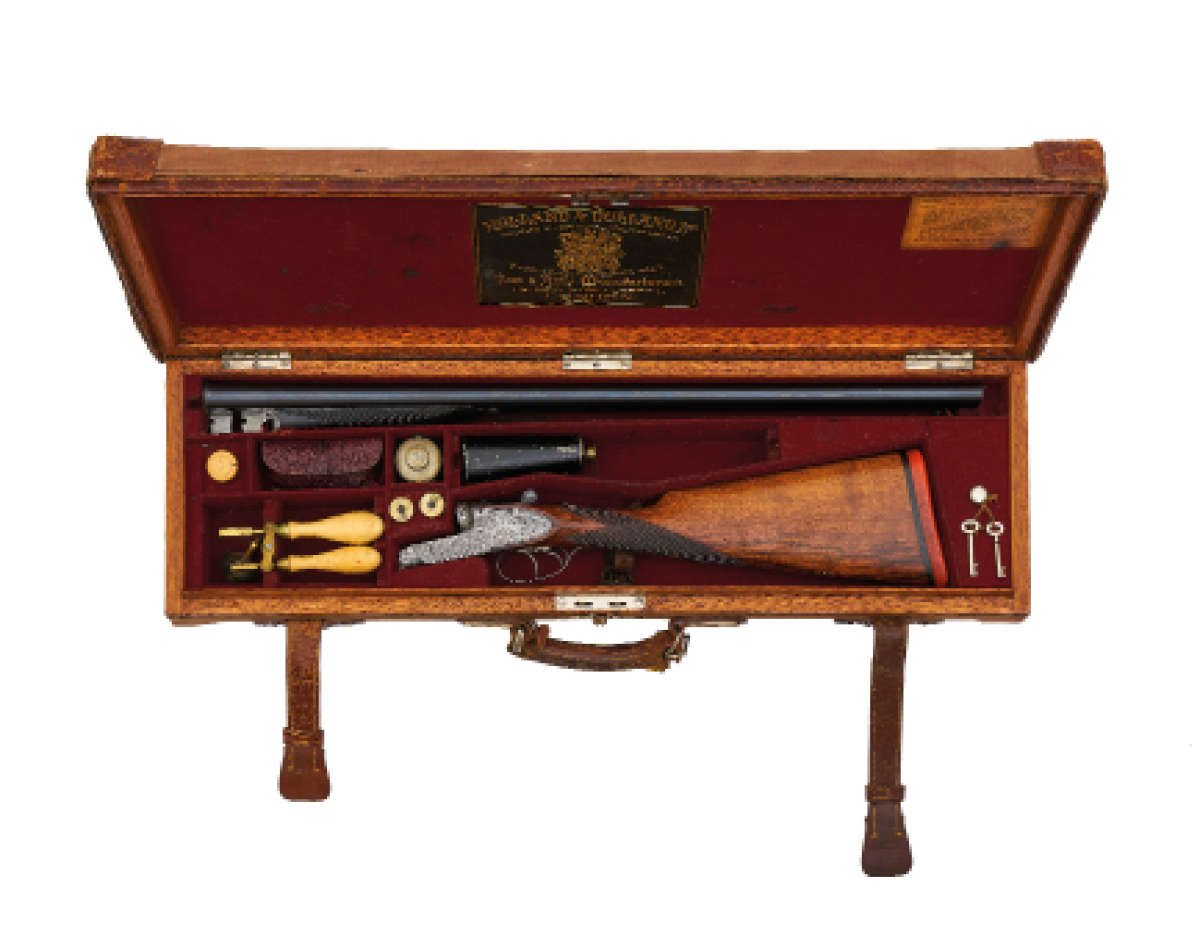
Guns became not just instruments of self-defence, but also objects of indulgence, with the finest of gold and ivory inlay work, precious stone embellishments and metal craftsmanship making them even more priceless. Shares Gaj Singh ji, “My forebears built up quite a collection, generation after generation, a dazzling array of precious metals and materials.” A love for hunting added to the yearning to collect them. “Though pig sticking on horseback remained Jodhpur’s ‘national sport’, the guns travelled far and wide—from the black buck in Sardar Samand to the tiger in Bundi, from the imperial grouse in Gajner to the buffalo in East Africa,” he says.
Jodhpur owns the best Indian matchlocks in the subcontinent, much admired at the Delhi Durbar in 1911. Successively, Maharajas have collected modern British and American sporting guns, shotguns, revolvers and automatic pistols too. Shares Robert Elgood, the author, “This book, with 350 unique images of guns and Rajput Paintings, offers scholars and collectors the opportunity to not just see the superb Jodhpur collection but also learn of Rajput traditions relating to hunting and war.” Elgood, an expert on the historic arms of Hindu India, is an author of numerous books and an expert in Indian anthropology. A guest scholar at various museums, he has also worked with Sotheby’s and The Wallace Collection.
Through the book, Robert catalogues the various guns in the possession of the Mehrangarh Fort. This includes the coloured enamel Holland & Holland 12 bore shotgun, made exactly 100 years ago and an absolute piece of art, and a host of Lamchars, which literally means ‘big and long’, Jodhpur’s name for the tall matchlock, large calibre, ten foot long. Of special beauty is a Smoothbore gun with Makara head muzzle with inlaid brass eyes, crest forehead and square grooved rear sight with raised ears. Its stock in sheesham wood adds to its richness. From matchlocks to the Sindhi Jezail, that the Mehrangarh armoury has a particularly fine selection of, from matchlock barrels, gun barrels, pistols and rifles to combination weapons, the book is, above all, a visual treat.
Robert Elgood also shares Maharaja Umaid Singh’s passion for hunting. The Maharaja not just collected guns and hunted vociferously, but was also greatly interested in wildlife and conservation. He had even made a generous donation of Rs. 500 to the Bombay Natural History Society. Robert shares very vivid memories of hunts, transcribed from the 1926 hunting diary of HH Maharaja Umaid Singh ji. “I have been close to death on more than one occasion, but never so close as the time I lay between the forelegs of a rogue elephant,” says one account in the diary.
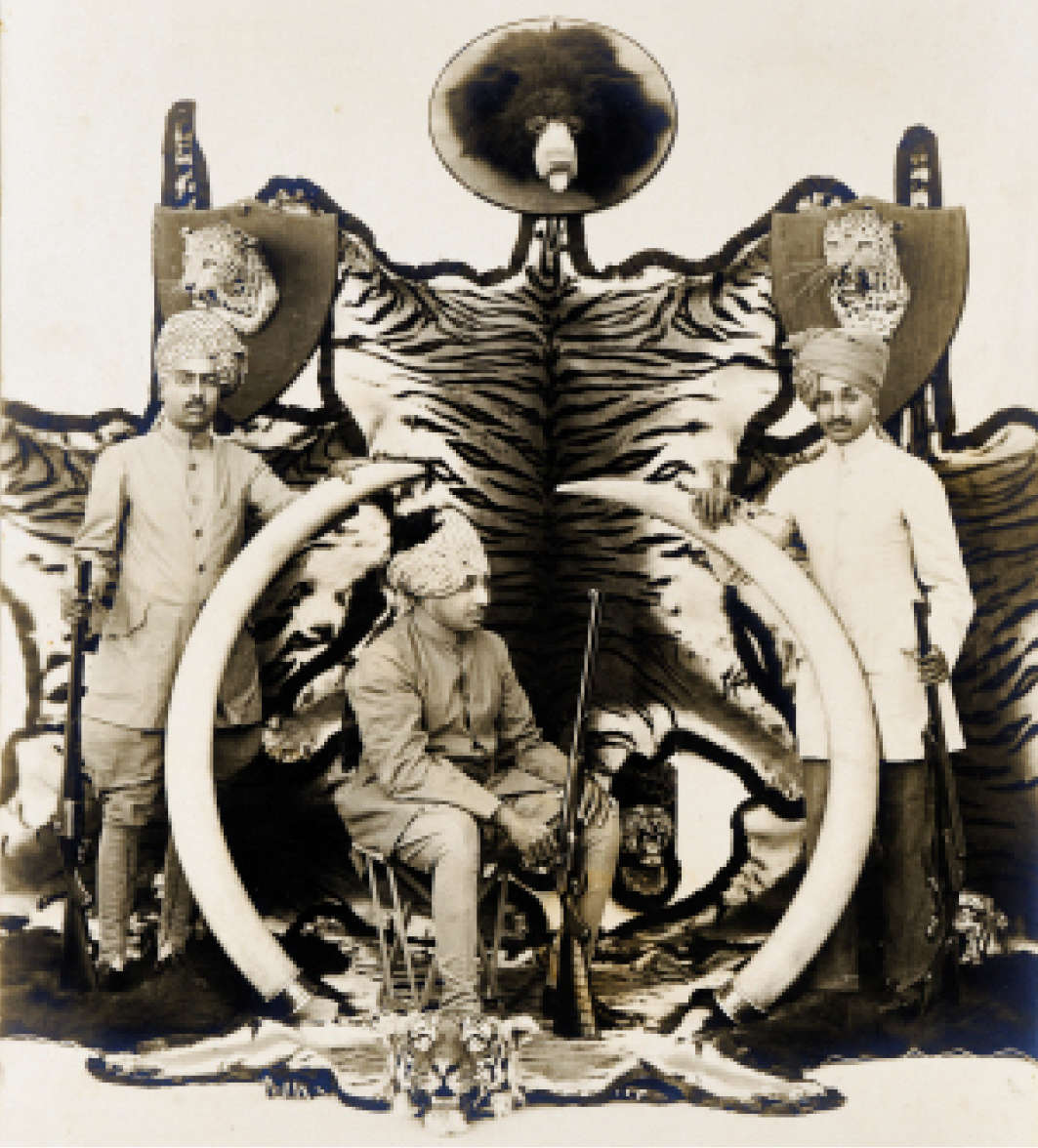
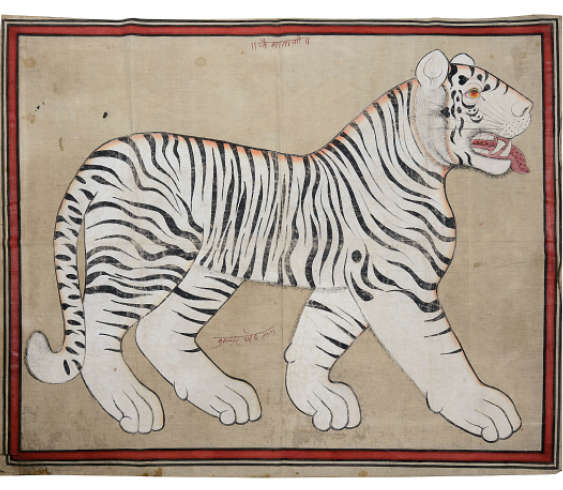
The Jodhpur family’s passion for armaments was taken to a natural conclusion when, as the book quotes, “Maharaja Hanwant Singh ji set up a gun factory in Mehrangarh fort and designed his own armaments.” One of his inventions, a disguised .22 pen pistol was recently auctioned as part of the Mountbatten Collection too. But how it got there is yet another fascinating story in the book, which one will have to read in order to know more.












